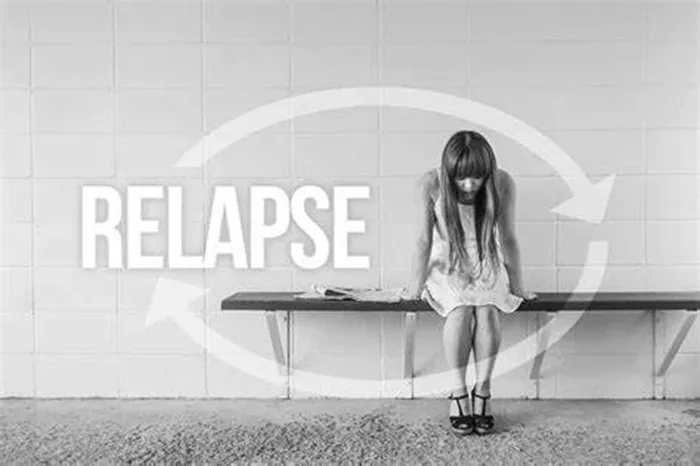Relapse is a critical concept in mental health, referring to the return of symptoms after a period of improvement or stability. Understanding what relapse means, its causes, prevention strategies, and management is essential for individuals living with mental health conditions, their families, and healthcare providers. This comprehensive guide delves into the multifaceted nature of relapse in mental health, exploring its implications, risk factors, and approaches to support long-term recovery.
Understanding Relapse in Mental Health
Definition of Relapse
Relapse in mental health occurs when a person experiences a return or worsening of symptoms after a period of remission or stability. It signifies a setback in the recovery process, indicating that the individual’s mental health condition is no longer being effectively managed.
Types of Relapse
Symptomatic Relapse: The reappearance or intensification of symptoms related to the mental health condition.
Behavioral Relapse: A return to maladaptive behaviors that may have been associated with the initial onset of the condition.
Functional Relapse: A decline in the ability to perform daily activities and maintain personal, social, or occupational functioning.
Common Mental Health Conditions Prone to Relapse
Certain mental health conditions have higher relapse rates, including:
Major Depressive Disorder (MDD): Characterized by episodes of deep sadness, loss of interest, and other depressive symptoms.
Bipolar Disorder: Involves cycles of manic and depressive episodes.
Schizophrenia: A severe mental disorder marked by delusions, hallucinations, and disorganized thinking.
Anxiety Disorders: Includes conditions such as generalized anxiety disorder, panic disorder, and social anxiety disorder.
Substance Use Disorders: Relapse is common during recovery from addiction to drugs or alcohol.
Causes and Triggers of Relapse
Biological Factors
Genetic Predisposition: Genetic factors can influence susceptibility to mental health conditions and relapse.
Neurochemical Imbalances: Changes in brain chemistry, such as neurotransmitter levels, can trigger symptom recurrence.
Chronic Medical Conditions: Co-occurring medical issues, like chronic pain or hormonal imbalances, can exacerbate mental health symptoms.
Psychological Factors
Stress and Trauma: High levels of stress or re-exposure to trauma can precipitate a relapse.
Cognitive Patterns: Negative thought patterns, such as catastrophic thinking or low self-esteem, can contribute to relapse.
Emotional Dysregulation: Difficulty managing emotions effectively can lead to a resurgence of symptoms.
Environmental and Social Factors
Life Transitions: Major changes, such as moving, job loss, or relationship breakdowns, can trigger relapse.
Lack of Support: Insufficient social support from family, friends, or healthcare providers can increase relapse risk.
Environmental Stressors: Ongoing stressors, such as financial difficulties or unsafe living conditions, can destabilize mental health.
Behavioral Factors
Non-Adherence to Treatment: Skipping medication or therapy sessions can lead to symptom recurrence.
Substance Use: Alcohol or drug use can interfere with treatment and precipitate a relapse.
Poor Self-Care: Neglecting physical health, such as poor diet, lack of exercise, and inadequate sleep, can impact mental health.
Signs and Symptoms of Relapse
Early Warning Signs
Recognizing early warning signs of relapse can facilitate timely intervention. These signs may include:
Changes in Mood: Sudden shifts in mood, such as increased irritability, sadness, or anxiety.
Sleep Disturbances: Difficulty sleeping, frequent waking, or oversleeping.
Social Withdrawal: Avoiding social interactions and activities previously enjoyed.
Changes in Appetite: Significant changes in eating patterns, either increased or decreased appetite.
Cognitive Changes: Difficulty concentrating, indecisiveness, or forgetfulness.
Behavioral Changes
Behavioral indicators of relapse may manifest as:
Neglecting Responsibilities: Failing to meet work, school, or personal obligations.
Increased Substance Use: Turning to alcohol or drugs as a coping mechanism.
Avoidance Behaviors: Avoiding situations or activities that trigger stress or discomfort.
Engaging in Risky Behaviors: Taking unnecessary risks or engaging in self-destructive behaviors.
Emotional Changes
Relapse can also be identified through emotional shifts, such as:
Feelings of Hopelessness: A pervasive sense of despair or pessimism about the future.
Heightened Anxiety: Increased worry or fear without a clear cause.
Anger or Agitation: Uncharacteristic anger or irritability.
Preventing Relapse
Developing a Relapse Prevention Plan
A relapse prevention plan is a proactive strategy designed to help individuals maintain mental health stability. Key components of a prevention plan include:
Identifying Triggers: Recognize specific situations, people, or events that might trigger symptoms.
Early Warning Signs: List personal early warning signs and effective coping strategies.
Support System: Identify supportive individuals, such as family, friends, and healthcare providers.
Crisis Plan: Outline steps to take if symptoms begin to re-emerge, including emergency contact information and treatment options.
Medication Management
Adhering to prescribed medications is crucial for preventing relapse. Strategies include:
Regular Consultations: Schedule regular check-ins with healthcare providers to monitor progress and make necessary adjustments.
Medication Adherence: Use reminders or pill organizers to ensure consistent medication intake.
Managing Side Effects: Communicate any side effects to your healthcare provider to address concerns promptly.
Therapy and Counseling
Ongoing therapy provides continuous support and coping strategies:
Cognitive Behavioral Therapy (CBT): Focuses on identifying and changing negative thought patterns and behaviors.
Dialectical Behavior Therapy (DBT): Combines CBT with mindfulness techniques to manage emotions and stress.
Support Groups: Joining groups with individuals facing similar challenges can provide a sense of community and shared experiences.
Lifestyle Modifications
Adopting a healthy lifestyle can enhance mental health resilience:
Regular Exercise: Physical activity boosts mood and reduces stress.
Balanced Diet: Nutritious foods support overall health and well-being.
Adequate Sleep: Maintaining a regular sleep schedule is vital for mental health.
Stress Management: Techniques such as meditation, yoga, and deep breathing can reduce stress levels.
Support Systems
Building a robust support system is essential for long-term recovery:
Family and Friends: Encourage open communication with loved ones about your mental health needs.
Healthcare Providers: Maintain regular appointments and follow treatment recommendations.
Peer Support: Engage with others who have similar experiences through support groups or online communities.
Managing Relapse
Immediate Actions
If a relapse occurs, taking immediate action can help mitigate its impact:
Seek Help: Contact your healthcare provider or a mental health professional for guidance.
Follow Crisis Plan: Implement the steps outlined in your crisis plan, such as reaching out to supportive individuals.
Medication Review: Ensure that medications are taken as prescribed and discuss any changes with your provider.
Short-Term Strategies
In the short term, focus on stabilizing your condition:
Therapy Sessions: Schedule additional therapy sessions to address the relapse.
Temporary Adjustments: Make temporary adjustments to your daily routine to reduce stress and focus on recovery.
Self-Care: Prioritize self-care activities that promote relaxation and well-being.
Long-Term Strategies
For long-term management, reassess and strengthen your recovery plan:
Evaluate Triggers: Identify any new triggers or stressors that contributed to the relapse.
Adjust Treatment Plan: Work with your healthcare provider to adjust your treatment plan as needed.
Strengthen Support System: Reinforce connections with supportive individuals and resources.
Conclusion
Relapse in mental health is a complex and challenging aspect of managing chronic mental health conditions. Understanding the causes, recognizing the signs, and implementing effective prevention and management strategies are essential for supporting long-term recovery. By developing a comprehensive relapse prevention plan, adhering to treatment, and maintaining a strong support system, individuals can navigate the challenges of relapse and continue their journey towards mental health stability. Providing emotional and practical support to loved ones during relapse can also play a crucial role in their recovery process.
[inline_related_posts title=”You Might Be Interested In” title_align=”left” style=”list” number=”6″ align=”none” ids=”9686,9680,9631″ by=”categories” orderby=”rand” order=”DESC” hide_thumb=”no” thumb_right=”no” views=”no” date=”yes” grid_columns=”2″ post_type=”” tax=””]































